FOSS Week in Review
Two important Internet events happened 20 years ago this week and a web browser gets an unexpected — to us — windfall.
Jeeze. The plan when Larry passed the baton back to me for the Week in Review was to move it to late Friday afternoon. That way, I figured, I’d be able to include all of the news of the week, including the stuff that happens on Friday, for your weekend perusal. But the plan was to have the column up and running late Friday afternoon. Not as it is now, with me typing furiously, trying my darndest to get the thing published by midnight so I can still say that at least I got it in on the right day.
I’ve got to set a new deadline — 5:30 p.m. EST every Friday — and meet it. I’m missing Shark Tank right now…
News came in this week from a lot of places — I saw it first on Phoronix — that the Norwegian browser maker Opera has been sold for $1.2 billion U.S. Are you freaking kidding me? Opera is worth that kind of money? If so, that should make FOSS Force worth at least a couple of million — so what are we piddling around trying to raise $3,700 for? What does Opera have that’s worth so much money?
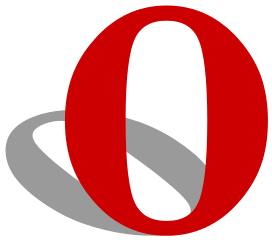 To begin with, they don’t. By all accounts, the money being offered by an investment consortium of “leading Chinese Internet firms,” that includes Kunlun and Qihoo 360, is at least 50 percent above the company’s most recent evaluation — so these people evidently really want the company bad, sort of like a middle aged man wants a shiny new red Corvette. They might be digging for Opera’s mobile browser, which doesn’t come preinstalled on Android devices in China.
To begin with, they don’t. By all accounts, the money being offered by an investment consortium of “leading Chinese Internet firms,” that includes Kunlun and Qihoo 360, is at least 50 percent above the company’s most recent evaluation — so these people evidently really want the company bad, sort of like a middle aged man wants a shiny new red Corvette. They might be digging for Opera’s mobile browser, which doesn’t come preinstalled on Android devices in China.
Chinese ownership would in itself be a marketing tool, since it’s nearly impossible to do business in China without including some local folks in on the mix. There’s also been speculation that the proud adoptive parents of the browser company are also interested in the company’s advertising properties.
Evidently, it’s all but a done deal. However, shareholders still need to give the nod and the deal still must meet with government approval, presumably from Norway and China.
The last time I used Opera on a regular basis was back in the day when Netscape 4X was long in the tooth, Netscape 6 was a disaster and Internet Explorer was…well, Internet Explorer. Opera was $50 for the ad free version, or free for those who didn’t mind a few ads. I didn’t mind because I could ignore them. It stayed on my computer until Mozilla came along, then it disappeared from my radar. Something tells me that my experience wasn’t uncommon.
This week — February 8, to be exact — marked the 20th birthday of the “Declaration of Independence of Cyberspace.” In case you’re too young to know, this declaration was an email manifesto sent to about 600 friends of its composer, John Perry Barlow, who is a co-founder of the nonprofit Electronic Frontier Foundation and a once-upon-a-time lyricist for the Grateful Dead.
“Governments of the Industrial World, you weary giants of flesh and steel, I come from Cyberspace, the new home of Mind,” the document began. “On behalf of the future, I ask you of the past to leave us alone. You are not welcome among us. You have no sovereignty where we gather.”
Sounds like something the Diggers would’ve written in the mid 60s doesn’t it? That’s a good thing.
On Monday, Andy Greenberg published an article on Wired about the 20-year-old manifesto which still holds up today. Give it a read, especially if you’re young enough to think of 1996 as olden times. It might awaken something within you worth awakening.
Another 20th birthday: Barlow penned his declaration partially as an angry response at President Clinton for signing the Communications Decency Act on that same day. The CDA, as the law is called, wasn’t a good piece of legislation, basically a witch-hunt law aimed at getting pornographers off the Internet, and most of the law was declared unconstitutional about a year later. However, one piece of the law remains, Section 230, and it’s still a cornerstone of the Internet freedoms we enjoy today. Basically, Section 230 says that website owners can’t be held responsible for the actions of those who visit their websites. Without this guarantee, the Internet would be a much different place today.
Techdirt ran an article on Monday celebrating the 20th birthday of Section 230 of the Communications Decency Act, also worth the read.
SCALE and the March wind: Like the Iowa Caucus, the Southern California Linux Expo, or SCALE, has traditionally been first in line, always being the first of the year Linux and FOSS event in North America. That tradition may or may not continue, however. I’ve learned from a reliable source that SCALE will be settling into the month of March for at least the next couple of years. The Pasadena Convention Center, a big hit this year with everyone, is pretty tied up in February for the next few years, so SCALE has made plans for early March as its official date going forward. As announced earlier, SCALE 15X in 2017 will be March 2-5, 2017, and it’s a good bet that SCALE 16X in 2018 will be March 8-11, 2018.
Another day, another distro: Last Friday, after the Week in Review had been put to bed, Pat Riehecky of Fermi National Accelerator Laboratory announced the release of Scientific Linux 7.2. The distro is based on RHEL and is designed to be used by labs and universities. Despite the name, the distribution doesn’t contain a great deal of scientific software. More information on Scientific Linux, as well as downloads, are available from the distro’s website.
Quick takes: On Thursday, the Linux Tycoon — that would be Bryan Lunduke — went on a tirade against the idea of the KDE desktop, which is supposed to be portable and therefore distro agnostic, starting their own distro, KDE Neon. Seems that Lunduke must’ve missed the memo — it happens — as on February 3 PCWorld’s Chris Hoffman published an article which clearly states throughout that “KDE Neon is not a Linux distro.” Well, if it’s not a distro, what is it? Personally, I think it’s a duck. Read the two articles, then figure it out for yourself…. This week Amazon Web Services added a special clause to its terms of service: “This restriction will not apply in the event of the occurrence (certified by the United States Centers for Disease Control or successor body) of a widespread viral infection transmitted via bites or contact with bodily fluids that causes human corpses to reanimate and seek to consume living human flesh, blood, brain or nerve tissue and is likely to result in the fall of organised civilisation.” It’s nice to know that Amazon has the vision to look forward to the inevitable eventuality of the zombie apocalypse.
And speaking of zombies, it’s time for me to curl up with my laptop to watch season 1, episode 4 of “Better Call Saul.” Until next time, may the FOSS be with you…
We’re currently in the midst of our 2016 Indiegogo fundraising drive. Your support is crucial. Won’t you please visit our fundraising page and make a contribution to support FOSS Force?
Christine Hall has been a journalist since 1971. In 2001, she began writing a weekly consumer computer column and started covering Linux and FOSS in 2002 after making the switch to GNU/Linux. Follow her on Twitter: @BrideOfLinux


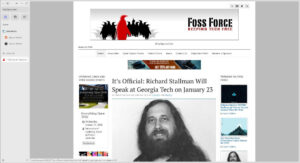



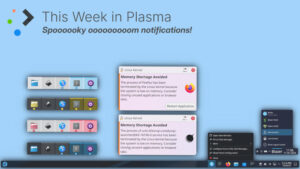
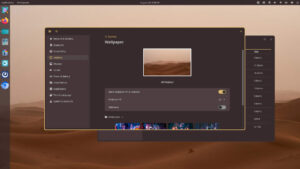
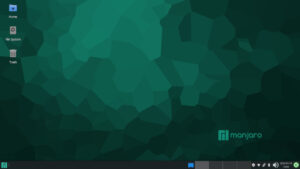



Now that Opera will be owned by the Chinese, it no longer exists to me.
Opera was never an option for me.
It’s proprietary garbage, the same as IE, Edge, and Chrome.